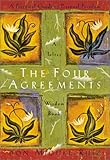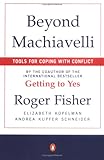2009

The Age of the Unthinkable


The Age of the Unthinkable", by Joshua Cooper Ramo.
This was an excellent book with implications in both international diplomacy and in preparing for a high-change future. Ramo's premise is that we've seen a lot of previously unthinkable things occur, that we're about to see a lot more, and that we should change our
weltanschauung so that likely events become thinkable and we stop getting surprised.
Artists, Craftsmen, And Technocrats
Artists, Craftsmen, And Technocrats
, by Patricia Pitcher. (Link leads to PDF). This book applies the artist-craftsman-technocrat scheme to modern life (in work, organizations, and societies).
She develops interesting flows of how each group sees the other, and suggests that the Technocrats have risen beyond their place in (business, society) to the detriment of us all. She closes with a call to embrace the Craftsmen and to tolerate the Artists, who are hated beyond reason by the Technocrats.
Subject to Change: Adaptive Path Design


This book talks about design (and more specifically, Agile reiterative design) as a process that develops products, delivers artifacts, and allows for change and development. They talk about focusing on the experience of the product, and how the product fits into a system (eco-, info-, etc). Then they introduced their thesis that effective experience-focused design and effective system design is the key business skill, and
the system is the product. Apple sells the iPod, plus iTunes, plus iStore - but those are just the components. What they're strategically selling is the system, and system usability and the system's alignment with the desired customer experience is what they're really selling. I really appreciate the way they set out their theme in the context of product design, and then elevated a few clicks to a meta-perspective of using Agile techniques as a business process. It's very well written.
The Logic of Failure


The subtitle is: "
Recognizing And Avoiding Error In Complex Situations". That's something I can use help with. The notion of this book (which I really enjoyed) is that
too many people study success, when the real opportunity for learning comes from studying failure.
Dietrich Dorner suggests that by studying failure, by spotting patterns of failure, we might be able to restrain ourselves in similar situations.
2008

"What Got You Here Won't Get You There."
Very thought-provoking. Considers the paradox that the habits that have made you successful may be the barrier to future success. Suggests that maybe you need to learn to stop doing counter-productive things more than you need to add a few more marginal tweaks.
 "The Four Agreements".
"The Four Agreements".
Excellent (short) book, identifies a perspective on cultural scripts and expectations, humans as a auto-domesticated species, provides four behaviors (IPAB) for a better life: be Impeccable with your words, don't take anything Personal, don't make Assumptions, do your Best. The initial pitch is thought-provoking and potentially controversial, but the four prescriptions for a better life are valuable regardless of what you may think of his metaphysical position.
The Prince


I read this recently when I was feeling naive about a situation and it became obvious to me - duh - that others have been reading this book for quite a while.It certainly presents a frame for categorizing behavior and people. I should have read this a long time ago - if not as a proscriptive book, then at least as an exposition of a school of thought.
beyond machiavelli


I read this because (1) maybe somebody's extended the original work in the last 500 years, and (2) in general, work by the Harvard Negotiation Project is worth reading. Frankly, Machievelli spoke more to my world than this book, but this book did leave me more convinced of the great difficulty and low probability of success in external diplomatic intervention.




 "What Got You Here Won't Get You There."
"What Got You Here Won't Get You There." "The Four Agreements".
"The Four Agreements".




0 comments:
Post a Comment
Comments and Feedback? Love that stuff. Please leave your thoughts in the box below--